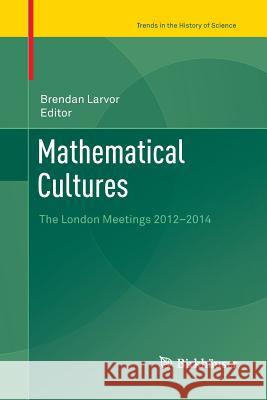Mathematical Cultures: The London Meetings 2012-2014 » książka
topmenu
Mathematical Cultures: The London Meetings 2012-2014
ISBN-13: 9783319803791 / Angielski / Miękka / 2018 / 460 str.
Kategorie:
Kategorie BISAC:
Wydawca:
Birkhauser
Seria wydawnicza:
Język:
Angielski
ISBN-13:
9783319803791
Rok wydania:
2018
Wydanie:
Softcover Repri
Ilość stron:
460
Waga:
0.65 kg
Wymiary:
23.39 x 15.6 x 2.41
Oprawa:
Miękka
Wolumenów:
01
Dodatkowe informacje:
Wydanie ilustrowane











